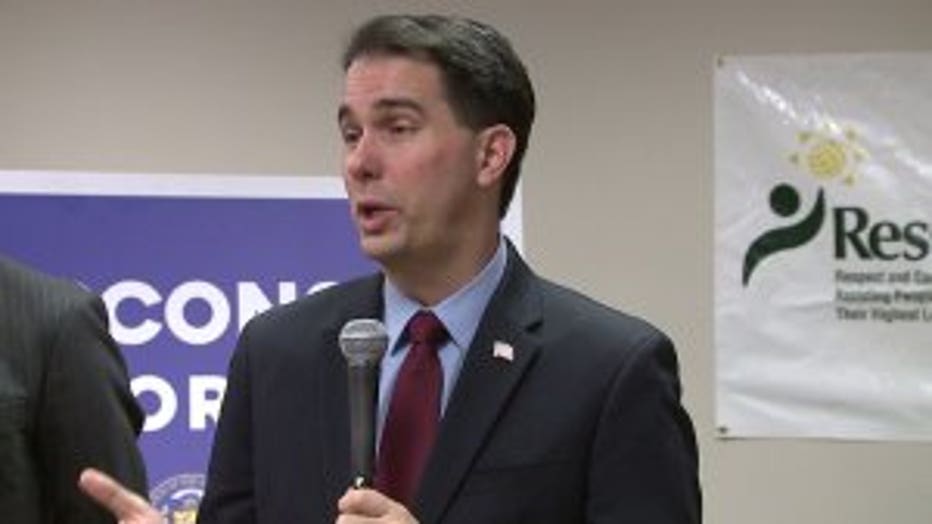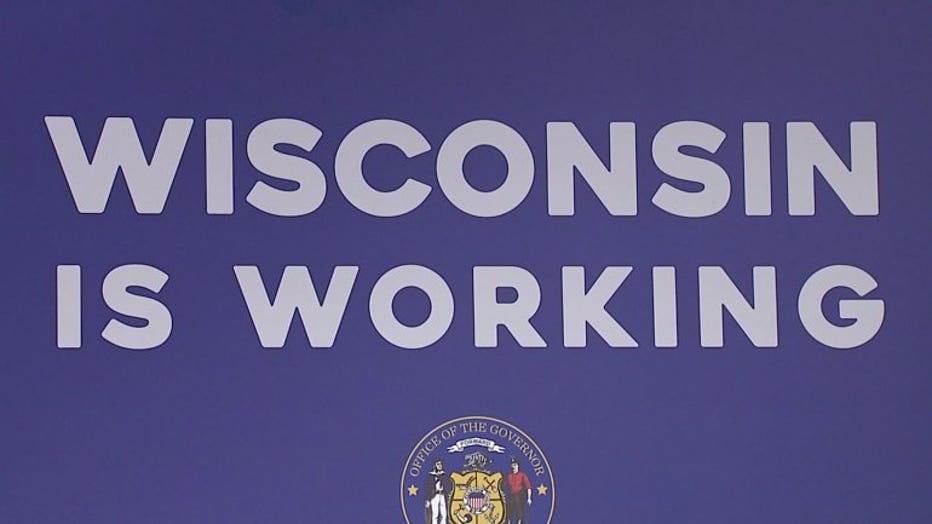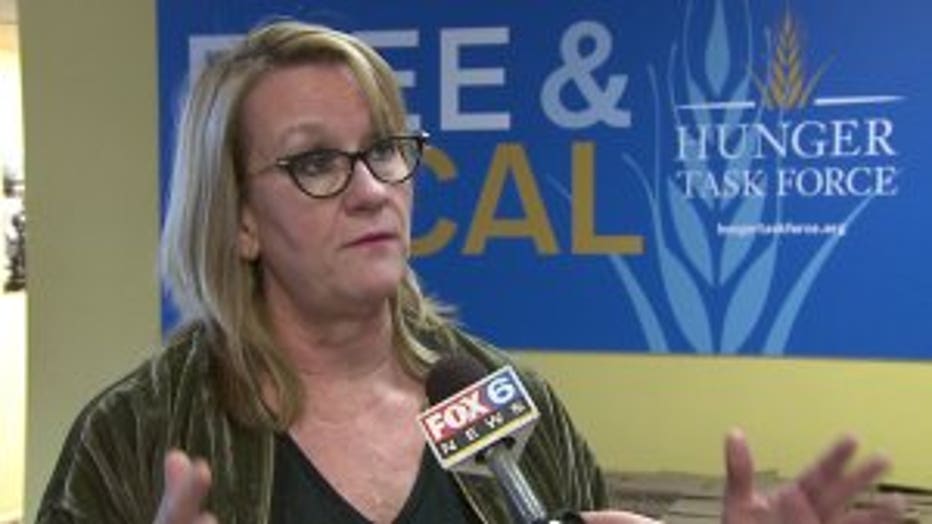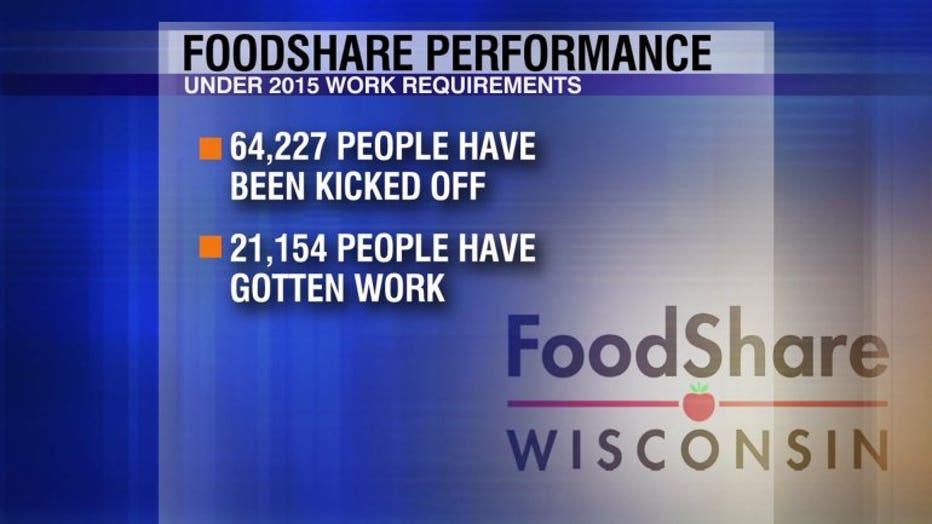Gov. Walker: Force parents to meet work requirements, or lose food stamp benefits
MILWAUKEE — Gov. Scott Walker wants parents to meet work requirements or be booted from the state's food stamp program, impacting many of the nearly 250,000 people in Milwaukee who receive such public assistance.
Walker unveiled elements of his proposal on Monday, January 23rd in Milwaukee with few details as to how the plan would be implemented. It immediately generated pushback from Democrats and critics of the governor's previous welfare changes.
"We fundamentally believe that public assistance should be a trampoline, not a hammock," Walker said. "By that, I mean we want to help people get back into the workforce, not settle into public assistance."

Governor Scott Walker
Walker's proposal, which he plans to include in the state budget, would require parents with children ages six to 18 years old to work 80 hours a month or participate in job training to maintain their benefits. He is also calling for imposing work requirements on able-bodied adults receiving housing assistance.
Walker says the requirements would be similar to current state law requiring childless adults receiving food stamps who don't work 80 hours a month to participate in job training. He said the state has a worker shortage, and his plans were designed to increase the number of available workers.

Walker signaled an interest in working with President Donald Trump's administration and congressional Republicans to make the changes. Federal law currently bans Wisconsin from implementing the work requirements on parents, but Walker said he was "very optimistic" that the federal government -- now controlled by Republicans -- would grant him the authority.
In Milwaukee County, an average of 248,151 people were receiving FoodShare benefits during 2016. (CLICK HERE to see FoodShare recipients by county.)
Walker says the new proposals would be started as a pilot, but did not say when they would take effect or how many people would be impacted. State lawmakers would still have to approve of the plan during debate over the budget this spring.
"I think we’ll get a lot of support in our request," state Sen. Alberta Darling, R-River Hills, said when asked about the Trump administration's role. "We’ve been -- not assured -- but discussing at all levels what we need to do to get the waivers."
Walker's office said any sanctions for non-compliance would affect only the adult's portion of the benefit. Children would still receive their part of the FoodShare assistance, but it wasn't clear how the state would keep those benefits away from the non-compliant parent.

Sherrie Tussler
Critics said the plan would hurt families.
"Families eat together, and so, if you minimize the amount of money available to purchase food, all that means is you`re going to increase hunger," said Sherrie Tussler, executive director of the Milwaukee-based Hunger Task Force.
Wisconsin already has work requirements for childless adults. Since those requirements went into effect in 2015, 64,227 people have been booted from FoodShare. State records show that 21,154 people have found work.
But state officials don't know how many of those people have jobs that pay well enough that they no longer need public assistance.
"We do not track the number of people who no longer need public assistance because they are working in family-supporting jobs, or any of the other plethora of reasons that may be responsible for that change," said Elizabeth Goodsitt, a spokeswoman for the state Department of Health Services.

Yet Darling, who supports Walker's proposal, said she believed the state did have such numbers.
"I don’t know how broadly they’re issued or published, but we need to have transparency on our programs," she said. "I think we’re really working on that, to have that kind of data so we can see results, success, and then judge whether we’re on the right track or not."
The Democratic leader of the Wisconsin Senate says the measure shows Walker has a double standard.
"Once again, Gov. Walker is creating one set of rules for working families and another set of rules for the wealthy and well-connected," said Minority Leader Jennifer Shilling, D-La Crosse.
Republicans and the state chamber of commerce praised the welfare proposals. Wisconsin Manufacturing and Commerce lobbyist Scott Manley praises the idea, saying it will be an incentive for people to work.
Walker has also asked lawmakers to increase child care assistance to families that make more than 200 percent of the poverty level. He said it would eliminate a "cliff" in which parents are unwilling to accept a career promotion if it means making more money but losing their benefits.
"All of these initiatives, these proposals we’re talking about, are about easing people off and weaning people off of assistance," Walker said.

